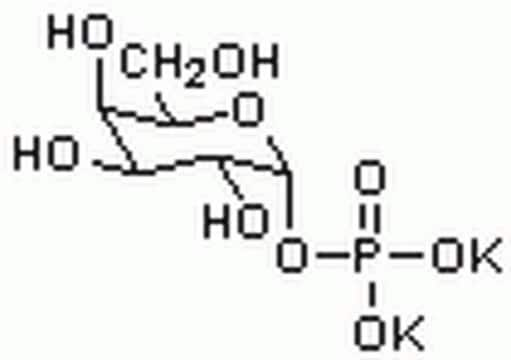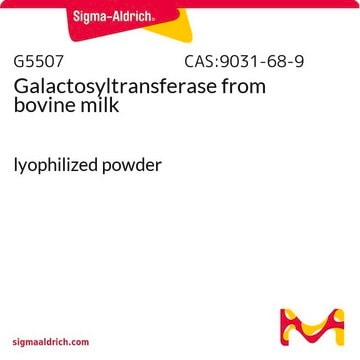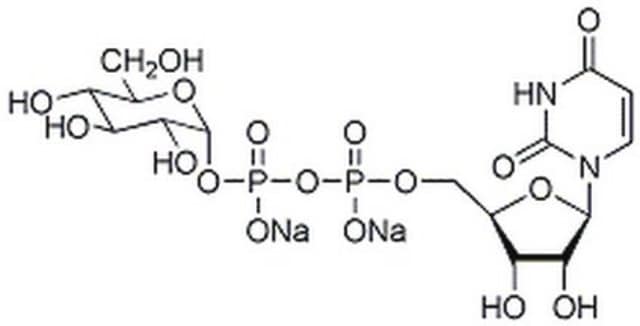G4256
Galactose-1-phosphate Uridyltransferase from galactose-adapted yeast
Type IV, lyophilized powder, 20-60 units/mg protein (modified Warburg-Christian)
Synonym(s):
GALT, UDP glucose:α-D-galactose-1-phosphate uridyltransferase
Select a Size
$964.00
Available to ship onMay 01, 2025Details
Select a Size
About This Item
$964.00
Available to ship onMay 01, 2025Details
Recommended Products
type
Type IV
Quality Level
form
lyophilized powder
specific activity
20-60 units/mg protein (modified Warburg-Christian)
composition
Protein, 15-35%
foreign activity
6-phosphogluconate dehydrogenase ≤0.5%
UDP glucose pyrophosphorylase and galactokinase ≤0.2%
storage temp.
−20°C
Looking for similar products? Visit Product Comparison Guide
General description
Galactose-1-phosphate uridyltransferase (GALT) is a galactose metabolizing enzyme that facilitates the simultaneous conversion of uridine diphosphoglucose (UDP-glucose) and galactose-1-phosphate (gal-1P) to uridine diphosphogalactose (UDP-galactose) and glucose-1-phosphate. Classic Galactosemia (CG) is an inherited metabolic condition caused by deficiency of GALT activity.[1] GALT gene is mapped to human chromosome 9p13.[2] Deficiency of GALT results in type 1 galactosemia.[1]
Application
Unit Definition
Physical form
Storage Class
11 - Combustible Solids
wgk_germany
WGK 3
flash_point_f
Not applicable
flash_point_c
Not applicable
ppe
Eyeshields, Gloves, type N95 (US)
Choose from one of the most recent versions:
Certificates of Analysis (COA)
Don't see the Right Version?
If you require a particular version, you can look up a specific certificate by the Lot or Batch number.
Already Own This Product?
Find documentation for the products that you have recently purchased in the Document Library.
Customers Also Viewed
Active Filters
Our team of scientists has experience in all areas of research including Life Science, Material Science, Chemical Synthesis, Chromatography, Analytical and many others.
Contact Technical Service








